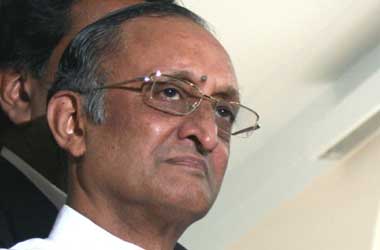Making headway on the long-pending GST Bill, the Centre and States on Tuesday agreed on the principle that the tax rate will be lower than the current levels even as the broad consensus emerged that the rate should not be part of the statute. A meeting of the Empowered Committee of State Finance Ministers convened by Finance Minister Arun Jaitley also agreed to include in the Constitutional Amendment Bill the mechanism of compensating states for any loss of revenue in first five years of Goods and Service Tax (GST) subsuming all indirect tax levies including VAT. [caption id=“attachment_207710” align=“alignleft” width=“380”]  West Bengal Finance Minister Amit Mitra. Image courtesy PIB[/caption] There was also broad agreement on the principle that the ordinary businessman and the common tax man will benefit from introduction of GST by way of lower tax rates while the states will not face any loss of revenue, West Bengal Finance Minister and the panel chairman Amit Mitra said after the meeting. Also, there was “consensus to keep the GST rate out of the Constitutional Amendment Bill,” he claimed. The government is keen to get the GST Bill approved during the current monsoon session of Parliament ending 12 August but is facing opposition from the Congress which wants a low tax rate to be part of the Constitutional Amendment Bill while the 1 percent additional tax in hands of states over and above the GST rate be scrapped. “As you know that no tax rates are provided in the Constitution. It was discussed and conclusion reached that Union Finance Minister will communicate to other parties. He will explain it to them that it can’t come in Constitutional Amendment but it can come in GST Bill or GST Act,” Mitra said. The decision at the empowered committee is likely to isolate the Congress on the issue. The only way out for the party seems to be to fall in line. However, on the revenue neutral rate of 18 percent recommended by the Arvind Subramanian panel seems to continue as a bone of contention for the state governments. According to a report in The Indian Express, “the crucial revenue neutral rate (RNR) of taxation as well as capping of the GST rate in the Bill did not find favour with many states”. “All states were of the view that the tax rates put forward by the Chief Economic Advisor are not acceptable. There was no consensus on what the rate should be," Kerala finance minister Thomas Isaac has been quoted as saying in the report, adding that the consensus was the rate cane be 18 percent or above that. However, a DNA report quoted Mitra as saying that the rate can be decided when the law is enacted. What is more important is that a “a wording has been worked out which essentially means that the incident of tax on the common man has to be significantly reduced”, the report said citing Mitra. The “broad consensus put together is satisfactory to all political parties and all states,” PTI quoted Mitra as saying. There are indications that the government may now bring the GST bill in Rajya Sabha next week instead of earlier plans of doing it this week. Mitra said while there was no talk on specific tax rate, it emerged at the meeting that the rate should be such that is lower than existing levels otherwise “there is no point of reform.” The states, he said, were of the view that small businesses with turnover up to Rs 1.5 crore in a year should come under purview of only state governments and dual control of states and centre can be exercised over businesses larger than them. With PTI
There are indications that the government may now bring the GST bill in Rajya Sabha next week instead of earlier plans of doing it this week
Advertisement
End of Article


)
)
)
)
)
)
)
)
)



